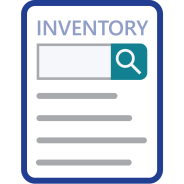
Choose from 5 options:
If you are introducing chemicals in the exempted category, you must keep certain records.
Each type of exempted introduction has different record-keeping requirements
- Introductions where the highest indicative risk is very low risk
- Manufactured soap
- Introductions that are only for use in research and development
- Chemicals that are comparable to listed chemicals
- Polymers that are comparable to listed polymers
- Chemicals resulting from non-functionalised surface treatment of listed chemicals
- Chemicals that are imported and subsequently exported
- Polymers of low concern
- Low-concern biological polymers
On these pages:
- We describe the information you must provide for each exempted introduction type, if we ask for it.
- You can download our record-keeping checklists. In these checklists, we’ve indicated the type and level of information that we expect to receive (if we ask for it), to prove your chemical introduction is authorised as an exempted introduction.
- We’ve included examples showing how introducers can satisfy our request to provide records.
For certain exempted introductions, you must submit a once-off exempted introduction declaration.
You'll also need to submit an annual declaration after the end of our registration year.
You must keep certain records about your chemical introductions to confirm they are authorised under our exempted category. This also ensures you’re aware of any changes that could impact your categorisation. You must keep these records for 5 years, even after you’ve stopped introducing your chemical.
We may ask for your records to ensure your chemical introduction is authorised as an exempted introduction. If this happens, you must provide all the information we ask for within 20 working days. If you don’t meet this time frame, any further introductions of your chemical, under the same circumstances, will not be authorised until we get the information.
Learn more about our laws, rules and regulations.